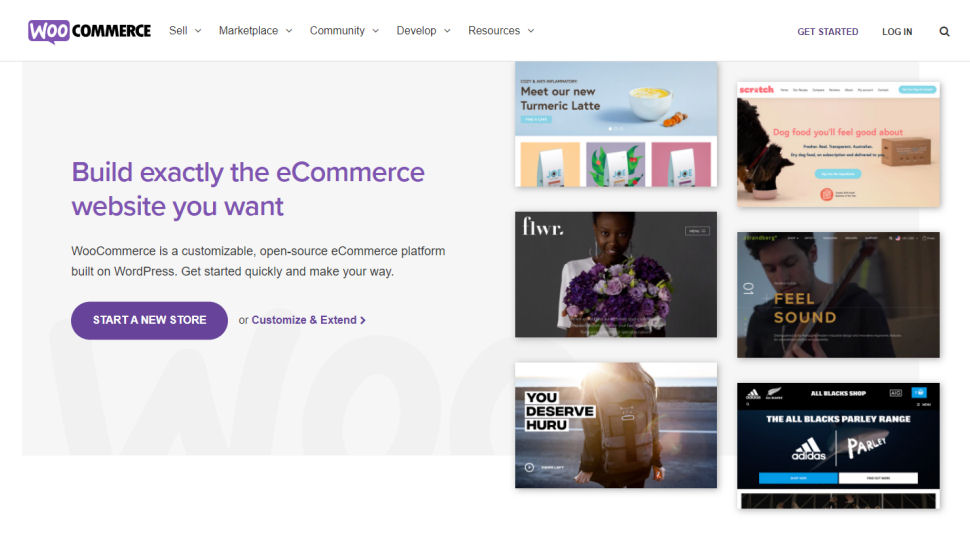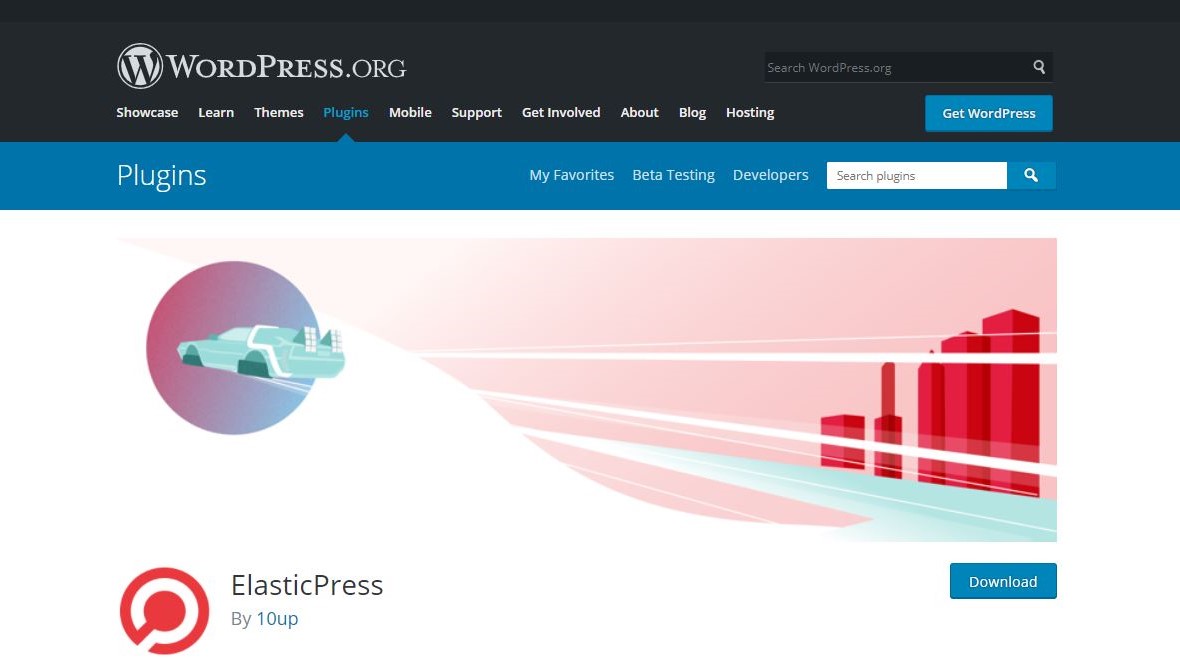Why WordPress is great for your ecommerce website
Low barrier to entry and flexibility make WordPress a solid choice for any online store

Sign up for breaking news, reviews, opinion, top tech deals, and more.
You are now subscribed
Your newsletter sign-up was successful
With the US on track to become a trillion-dollar ecommerce market by 2022, ecommerce activity is beating even bullish expectations.
At the same time, the surge in ecommerce activity that took off last year has created a crowded marketplace for both first-time and experienced online store owners, making it more difficult than ever to stand out.
While there’s little doubt that ecommerce is here to stay, there’s less of a consensus when it comes to the strategies and the types of websites best-suited for keeping up with the evolving trends and consumer demands businesses must address in order to stay relevant today.
As more people prefer to shop online, one thing is certain: reaching them with fast, personalized, and convenient digital experiences is crucial to capturing and retaining their business.
Online stores built with flexible solutions are simply better-positioned to meet these demands head-on. While the list of SaaS (and other) products aimed at ecommerce store owners seems to expand by the day, WordPress, which is open source, is also being used as a powerful, flexible, and cost-effective solution for quickly building new ecommerce stores and sites or refreshing old ones.
This article will take a closer look at why WordPress is being used for more ecommerce stores than ever and how WooCommerce is helping those stores grow.
- These are the best ecommerce hosting providers around
Benefits of WordPress
WordPress now powers more than 40% of the Internet, and it’s become the world’s #1 content management system (CMS) for more than a few reasons.
Sign up to the TechRadar Pro newsletter to get all the top news, opinion, features and guidance your business needs to succeed!
For ecommerce stores, WordPress is an attractive option because it provides users with true ownership over their digital business. When you launch an ecommerce store using a closed, proprietary platform, you don’t own that store and critically not the data it produces, regardless of how much you’ve invested in it. Instead, you’re renting your storefront and your data from a vendor that can change its features, functionality, data sharing, and even its billing practices at the drop of a hat.
WordPress changes all of that because it’s an open source framework that integrates with a huge ecosystem of plugins and other technologies from across the growing martech stack. When you build on WordPress, not only do you own your site and everything that comes with it, you get to decide when it’s time to add new features and functionality, or when it’s time to change your web host.
Plus, because of WordPress’ inherent flexibility, it doesn’t cost an arm and a leg to add new integrations and it’s much easier and less time-consuming to find developers who have serious WordPress experience.
WordPress also frees ecommerce stores from the “success tax” that plagues many proprietary solutions. WooCommerce, which is the leading WordPress ecommerce plugin, does not charge users a percentage of sales, whereas platforms like Shopify do—up to an additional 2%!
From avoiding commissions and vendor lock-in to breaking out of the limitations that come with cookie-cutter website builders, and locked, proprietary ecommerce platforms, the overall benefit you get with WordPress is the freedom and flexibility to grow your ecommerce store alongside your business or brand.
In addition to the above, the following are some of the most commonly cited benefits of using WordPress:
Lower cost of entry: Because it's open source and free from upfront licensing fees, WordPress is a powerful tool and a popular choice for online stores now more than ever. The costs associated with getting started are generally related to hosting and purchasing a domain, allowing for a low barrier to entry relative to closed or proprietary ecommerce (or other) software.
Community support: WordPress is built on well-understood and rigorously-tested, open source technology, maintained by an active community of thousands of professional developers and code testers. As a result, it has a highly reliable update cycle that provides new features, enhancements, and security improvements on a regular basis. The same is true for the leading ecommerce plugins.
Extensibility and customization: The flexibility you get with WordPress is hard to overstate, especially when compared to closed, proprietary platforms. You can make use of the thousands of WordPress themes and more than 55,000 free plugins available today, and not just for ecommerce. Whatever feature, functionality, or customization you want to add to your online shop, there’s probably an existing solution out there.

Building a brand around your ecommerce store
In addition to building a powerful ecommerce website, using WordPress means you gain a ton of options for connecting your online store with your brand and creating a larger digital experience that awaits prospective customers; just like the front door to a brick-and-mortar business.
With a wide range of options for building media-rich, dynamic content you can use to promote your store and create buzz around discounts or sales, WordPress makes it easy to add unique, brand-infused elements to your ecommerce website that takes customers beyond a simple shopping cart experience.
Weaving your brand across your website and telling the story of your business resonates with customers far more than a cold, transactional checkout screen, and it leads to higher traffic and more conversions.
Even as Customer Acquisition Cost (CAC) increases across the board, content marketing continues to provide excellent ROI when it comes to new customers—businesses with blogs see 67% more leads than those without, and close rates for inbound marketing campaigns are 8-10x above those from outbound efforts.
If you’re a new ecommerce site owner or you’re refreshing an old site that doesn’t have a lot of visibility, creating fresh, engaging content that complements your ecommerce experience is one of the best investments you can make in your online store.
Content translates into traffic, and ultimately, revenue. Because WordPress is king when it comes to creating that content, using it to build your ecommerce site makes it easier for you to connect your unique brand to your budding online store.
And because WordPress works seamlessly with digital marketing software like HubSpot, for example, users can also use the content they’re creating to quickly launch and track inbound marketing initiatives that give store traffic and lead conversions an added boost.

Growing ecommerce functionality with WordPress
In addition to the powerful functionality and flexibility WordPress is known for, its associated ecommerce capabilities have also expanded over the years.
As mentioned above, WooCommerce is the leading WordPress ecommerce plugin, and it now powers more than a quarter of the top 1 million ecommerce sites overall because it mirrors much of the flexibility and wide functionality WordPress provides.
From existing sites with outdated, clunky online shops to new merchants just getting off the ground, WooCommerce provides an easy-to-use approach to ecommerce that’s also highly effective—WooCommerce-powered sites are believed to generate between $10 and $15 billion in annual sales.
Another reason WordPress is increasingly seen as an attractive foundation for ecommerce sites is because of plugins like WooCommerce, Easy Digital Downloads, and BigCommerce, which allow for the creation of engaging online storefronts without hampering any of the flexibility WordPress provides as a CMS.
When those storefronts are hosted on a platform that’s specialized for WordPress, with tools and functionality built to support ecommerce stores (i.e. WooCommerce hosting), WordPress as an ecommerce solution really starts to shine.
While some users rely on WooCommerce alone to help power their online stores, others take advantage of a more modular approach, bringing in additional integrations and features that go beyond initial store setup to enhance things like search functionality and personalization.

ElasticPress is an increasingly popular example of this type of added functionality.
Because search plays such a crucial role in the online buyer journey (more than 40% of online shoppers use search and they’re twice as likely to buy when they find what they’re looking for), improving on WordPress’ relatively basic default search capabilities can provide a significant boost for many online stores.
With added functionality like auto-suggestions and custom, weighted search results, more shoppers are able to find what they’re looking for faster, leading to higher conversions, higher cart values, and higher ecommerce revenue.
While ElasticPress is available as a standalone solution, it also powers the enhanced search functionality found in ecommerce hosting from WP Engine, which combines WooCommerce, enhanced search features, and industry-leading performance with best-in-class plugins and themes for a powerful, out-of-the-box ecommerce solution.
Adding the functionality that comes with WooCommerce and ElasticPress to your WordPress site are two potential use cases among many found across the growing list of ecommerce sites built on WordPress.
Omnichannel commerce with WordPress
As the needs and demands of today’s digital consumers continue to evolve, creating a fast, eye-catching ecommerce site is just the first step in building a competitive digital business.
Adding content and robust ecommerce functionality is certainly part of the puzzle, and bringing these elements to your site are some of the key ways your store can stand out from the crowd.
But today, the entire customer experience—from the first click to product delivery and beyond— has to be easy to navigate and convenient on an individual level, or customers will simply go somewhere else.
Embracing an omnichannel approach, in which your digital footprint is optimized for any device, and your ecommerce store is robust enough to provide customers with suggestions, relevant alternatives, and a variety of payment and delivery options for whatever they are looking for, is quickly becoming the experience consumers expect to find online.
The ability to tap into all the facets of the larger customer experience truly sets WordPress apart in the ecommerce arena, as the same level of available customization and integration just isn’t available with many proprietary or ecommerce-only solutions.
Indeed, WordPress is a powerful choice for anyone looking to build or refresh an online store because it offers a low barrier to entry for beginners while providing flexibility when you’re ready to grow, and optimize for mobile, tap into additional channels, set up integrations with third-party platforms including marketing, logistics, or delivery solutions, all of which help you touch every stage of the customer journey.
When best-in-breed ecommerce functionality meets the wide flexibility of WordPress, it unlocks a multitude of options for building a robust ecommerce store. When that store is powered by a managed WordPress hosting provider with ecommerce expertise, the sky is truly the limit.
- Also check out our complete list of the best ecommerce platforms

Désiré has been musing and writing about technology during a career spanning four decades. He dabbled in website builders and web hosting when DHTML and frames were in vogue and started narrating about the impact of technology on society just before the start of the Y2K hysteria at the turn of the last millennium.